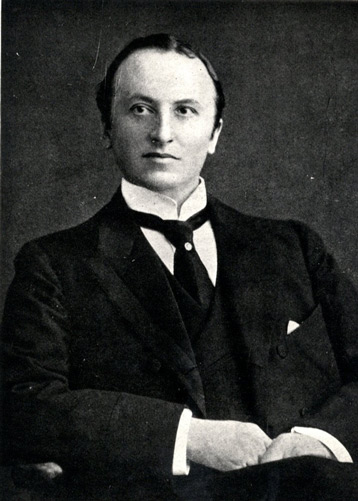The views expressed in our content reflect individual perspectives and do not represent the authoritative views of the Baha'i Faith.
The Baha’i Faith began during the time when a corrupt, despotic ruling class ran Persia–which included a brutal penal system. Lord Curzon, in his book Persia and the Persian Question, noted:
Before I quit the subject of the Persian law and its administration, let me add a few words upon the subject of penalties and prisons. Nothing is more shocking to the European reader, in pursuing his way through the crimestained and bloody pages of Persian history during the last and, in a happily less degree, during the present century, than the record of savage punishments and abominable tortures, testifying alternately to the callousness of the brute and the ingenuity of the fiend. The Persian character has ever been fertile in device and indifferent to suffering; and in the field of judicial executions it has found ample scope for the exercise of both attainments. Up till quite a recent period, well within the borders of the present reign, condemned criminals have been crucified, blown from guns, buried alive, impaled, shod like horses, torn asunder by being bound to the heads of two trees bent together and then allowed to spring back to their natural position, converted into human torches, flayed while living.
Lord Curzon summed up the thorough corruption of Persian government and society in these words:
. . . Under a twofold governing system, such as that of which I have now completed the description—namely, an administration in which every actor is, in different aspects, both the briber and the bribed; and a judicial procedure, without either a law or a law court—it will readily be understood that confidence in the Government is not likely to exist, that there is no personal sense of duty or pride of honour, no mutual trust or co-operation (except in the service of ill-doing), no disgrace in exposure, no credit in virtue, above all no national spirit or patriotism.
By the mid-nineteenth century there were, to be sure, an increasing number of patriotic individuals determined that Persia should compete successfully against the rising powers of Europe and America. At this time both Russia and Great Britain were making incursions into the country and threatening to reduce it to subservience. In the light of the situation described above, however, one can easily imagine how difficult it was to meet the challenge of modernization. Almost every worthwhile project, whether in transportation, commerce, education, or other areas, eventually succumbed either to the weight of bureaucratic self-interest or to a cooling of royal support. The difficulty was exacerbated by a clergy that was determined to block any innovations that they deemed potentially detrimental to their prerogatives. Proponents of unwanted change were often dealt with mercilessly.
As bleak as conditions were, and as different as the culture appeared to be from that of the Western world, there was nevertheless an interesting parallel between their religious outlooks. In the early years of the nineteenth century peoples in all of these nations sensed that world history was entering a new era. Often this was linked to a sense of the impending fulfillment of ancient scriptural prophecies.
In North America and Europe many believed that the return of Christ was at hand. A number of well-known religious leaders and scholars went so far as to predict the precise year that He would come again to inaugurate the Kingdom of God on earth. A well-known example is that of the Reverend William Miller. Careful study of Biblical prophecy led him to the conclusion that the long-awaited day would come in 1843 or 1844. Tens of thousands in America believed this interpretation. Of course, Christ did not appear in the heavens, and so future generations would remember the episode as “the Great Disappointment.” The Millerites were but one example of a number of millennial movements that were born and flourished in those years.
It was very much the same case in the Middle East, where new movements actively proclaimed the near advent of the Promised One of Islam. Significant numbers of Muslims expected two Figures to appear, in rapid succession, and, in a manner similar to Christian expectations, to establish God’s reign in the world. Siyyid Kazim, the leader of one of the best-known of these movements, declared that the time was very close at hand. He had come to this conclusion after careful study of the Qur’an and various other Islamic traditions concerning the Last Days. Around him gathered a large number of followers who undertook rigorous study and discipline to prepare themselves to recognize and follow the Promised One:
Praise be to Him Who hath fashioned this new era, this age of majesty, even as an unfolding pageant where the realities of all things can be exposed to view. Now are clouds of bounty raining down and the gifts of the loving Lord are clearly manifest; for both the seen and the unseen worlds have been illumined, and the Promised One hath come to earth and the beauty of the Adored One hath shone forth. – Abdu’l-Baha, Selections from the Writings of Abdu’l-Baha, p. 38.

















Comments
Sign in or create an account
Continue with Googleor